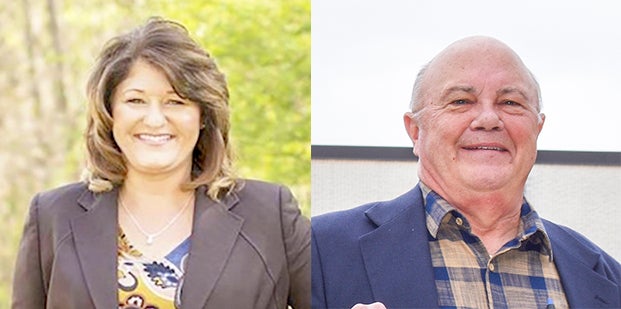Gov. Kay Ivey signs gas tax bill
Published 2:40 pm Tuesday, March 12, 2019
MONTGOMERY — A bill for a 10-cent gasoline tax has been signed by Gov. Kay Ivey after the Alabama House of Representatives and the Senate approved it the past two days.
The tax increase proposed by Ivey as part of her Rebuild Alabama Infrastructure Plan was approved Monday by the House 83-20 and then the Senate followed suit Tuesday 28-6.
Chambers County Representatives Bob Fincher, R- Wedowee, who represents the 37th District and Debbie Wood, R-Valley, resenting the 38th District were on different sides of the aisle on the bill.
Wood voted for the bill on Monday, saying that in 2017 Alabama generated $35 million less in motor fuel tax dollars than it did in 2012.
“If you go out on our roads, you can’t tell me there aren’t more cars on the roads,” she said. “But they do have better fuel economy.”
Wood isn’t saying that electric cars or better fuel-economic vehicles are bad, but those cars stop at the fuel pump less often than before, meaning fewer tax dollars. She said the state tried to take care of its roads based on the motor-fuel tax in place, but it wasn’t working.
“We had to do something to up make up the difference and that is what we are doing,” Wood said. “Even what we passed isn’t going to make it up. We are still behind.”
Although Wood has faced some scrutiny on social media about her decision to vote for the bill, she said every mayor, county commissioner and elected official within her district was on-board with her decision.
“We had to make a hard decision to move Alabama forward,” she said. “I am making decisions that I feel like will better the state of Alabama and my district.”
She said the tax increase is a need for not just her district, but the entire state and legislators will have to solve the problem on their own.
“We have problems all over the state with our infrastructure, and we have to fix it,” Wood said. “No one is coming to save us.”
Fincher voted against the bill. He said several issues within the language kept him from being able to vote yes.
“I always felt 10 cents is a large jump in the gas tax at one time,” he said.
Fincher said the state has operated with an 18-cent gas tax for a long time, and he felt jumping it 10 cents at one time was a big leap.
Additionally, he felt more money generated from the bill should be passed down to the local county roads instead of the state and federal highways.
“The needs I see in my district are at the county levels and county roads and bridges that really need repair,” Fincher said. “Two-thirds of this money raised is going to the state department of transportation.”
He said only a quarter of the money is targeted for local infrastructure, and he feels that number should be reversed.
Another issue Fincher had was language within the bill allowing for an automatic cost of construction increase that can increase one cent every two years without a vote by the Legislature.
“Your taxes can now go up without the legislature doing anything,” he said. “It is us dodging our responsibility, I think. We need to take responsibility … if we raise taxes, rather than setting in place something within the bill to let the taxes automatically rise without us taking action.”
The 10-cent-a-gallon gas tax increase would be phased in over three years. The state tax would then be adjusted up or down with the National Highway Construction Cost Index and could increase up to a penny every two years. The proposal would also place an annual $200 fee on electric vehicles and a $100 annual fee on hybrid vehicles.





